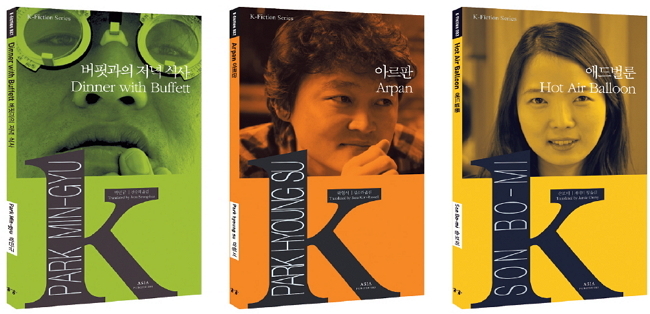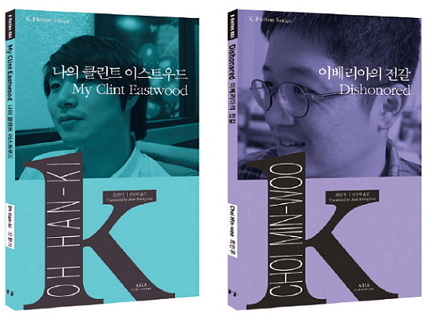When people think of Korea, many identify the country with K-pop, TV dramas and, to a lesser extent, films.
As the Korean wave, or Hallyu, has been shaped around the popular Korean culture, the country is taking the chance to prove the excellence of other aspects of Korean culture.
This time, young Korean writers and editors have gathered to introduce contemporary Korean literature. Under the title “K-fiction,” the project has released Korean-English translations of short stories by young, emerging Korean writers.
“Previously, we focused on classics and modern Korean literature, while less on contemporary works,” said Lee Kyung-jae, one of the series’ editors, at a press conference last week in Seoul. “But this time, we selected outstanding contemporary works that can resonate with both Korean readers and international readers today.”
While modern Korean literature focused on the Korean War, turbulent modern history of Korea and democratization movement, the “K-fiction” centers on contemporary topics that people from other countries can relate to such as a man suffering from skin irritation from doing too much housework, according to another editor Jung Eun-kyoung.
The “K-fiction” series consists of five short books by young writers: Park Min-kyu’s “Dinner with Buffett,” Park Hyong-su’s “Arpan,” Son Bo-mi’s “Hot Air Balloon,” Oh Han-ki’s “My Clint Eastwood” and Choi Min-woo’s “Dishonored.”
Each 100-page book contains the original Korean text and a translated version in English, along with writers’ notes and commentary.

(from left) “Dinner with Buffett” by Park Min-kyu, “Arpan” by Park Hyong-su, “Hot Air Balloon” by Son Bo-mi (ASIA Publishers)

“My Clint Eastwood” by Oh Han-ki, “Dishonored” by Choi Min-woo (ASIA Publishers)
The five-book series used renowned translators such as the editors of ASIA Publishers Jeon Seung-hee, Sora Kim-Russell and Jamie Chang.
“The works are very original and fresh, very different from the time period in Korea when I was young,” said Jeon Seung-hee at the press conference. “The writing style is light, but deals with deep subject matters.”
Writer Park Hyung-su reflects on globalization and the coexistence of different cultures in his novel “Arpan.” Park was living in Vietnam for two months while writing the story, witnessing a mix of cultures merged in Vietnamese lifestyle.
“When I was there, I had a Vietnamese-style sandwich. What surprised me was that inside the French baguette was not ham or cheese like I expected, but cilantro and seasoned meat with exotic sauces. It was unexpected, but really good.”
“Also, Vietnamese coffee is tasty, strong coffee mixed with condensed milk. You can’t find it anywhere else,” said Park. “And you start to wonder where these foods originally came from.”
Charles Montgomery of the Literature Translation Institute of Korea said Korean literature is still unknown to global readers, and the “K-fiction” series would promote young Korean writers in the global literary world.
“I was recommended from my friend to read the 1931 novel ‘Three Generations’ by Korean writer Yom Sang-seop, but I could not understand the story. The content was very Korean, representatively Korean,” said Montgomery. “But the answer to that problem is ‘K-fiction’ as each of these books has not only representative stories, but also autobiography, critical responses, historical representations and social issues that help the readers to understand the literature and why the characters are behaving in certain ways.”
The ASIA Publishers are planning to launch another series. The “K-fiction” series is sold online on Amazon and other Korean booksellers.
By Ahn Sung-mi (sahn@heraldcorp.com)





![[From the Scene] Monks, Buddhists hail return of remains of Buddhas](http://res.heraldm.com/phpwas/restmb_idxmake.php?idx=645&simg=/content/image/2024/04/19/20240419050617_0.jpg&u=20240419175937)

